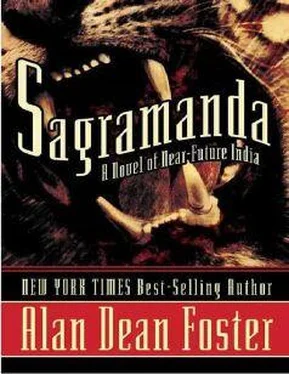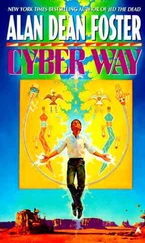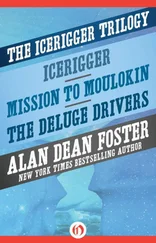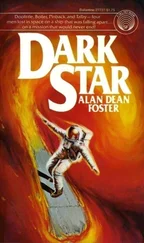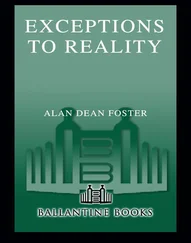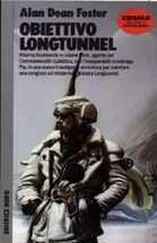Alan Foster - Sagramanda, a Novel of Near-Future India
Здесь есть возможность читать онлайн «Alan Foster - Sagramanda, a Novel of Near-Future India» весь текст электронной книги совершенно бесплатно (целиком полную версию без сокращений). В некоторых случаях можно слушать аудио, скачать через торрент в формате fb2 и присутствует краткое содержание. Жанр: Фантастика и фэнтези, на английском языке. Описание произведения, (предисловие) а так же отзывы посетителей доступны на портале библиотеки ЛибКат.
- Название:Sagramanda, a Novel of Near-Future India
- Автор:
- Жанр:
- Год:неизвестен
- ISBN:нет данных
- Рейтинг книги:5 / 5. Голосов: 1
-
Избранное:Добавить в избранное
- Отзывы:
-
Ваша оценка:
- 100
- 1
- 2
- 3
- 4
- 5
Sagramanda, a Novel of Near-Future India: краткое содержание, описание и аннотация
Предлагаем к чтению аннотацию, описание, краткое содержание или предисловие (зависит от того, что написал сам автор книги «Sagramanda, a Novel of Near-Future India»). Если вы не нашли необходимую информацию о книге — напишите в комментариях, мы постараемся отыскать её.
Sagramanda, a Novel of Near-Future India — читать онлайн бесплатно полную книгу (весь текст) целиком
Ниже представлен текст книги, разбитый по страницам. Система сохранения места последней прочитанной страницы, позволяет с удобством читать онлайн бесплатно книгу «Sagramanda, a Novel of Near-Future India», без необходимости каждый раз заново искать на чём Вы остановились. Поставьте закладку, и сможете в любой момент перейти на страницу, на которой закончили чтение.
Интервал:
Закладка:
There had already been many.
Today was Friday. Fridays were always difficult, he knew. There were families trying to get out of the city for the weekend, businesspeople fighting to finalize deals, couples arguing over how they were going to relax. He usually chose to work through the weekend. For one thing, it endeared him to his colleagues. For another, crimes committed on weekends often tended to differ from those committed during the week. Having been a cop for thirty years, Keshu Jamail Singh had learned to seek variety wherever he could.
He was a senior investigator, head of a department-but not the head of the department. In a city of a hundred million, there could be no single heads of anything. Oh, there was Commander-in-Chief Mukherjee, but his was largely a ceremonial position. Mukherjee was the public voice of the Sagramanda police force. With his Bollywood-star looks and sonorous voice, he was the perfect choice to intercede between the city government and the public. And, more importantly, the media. He quite fancied himself the knowledgeable investigator. Keshu and his hundred fellow senior investigators kept their opinions of Chief Mukherjee's abilities to themselves. They recognized his value to the department, and his uses, and knew that none of them could have smiled so fatuously at so many politicians, or presented requests for budgetary overrides with such oratorical skill. They needed Chief Mukherjee to facilitate actual police work. But not one of them would trust him to find his ass with his own hands in a darkened room.
Keshu Singh was responsible for supervising the investigation of the most serious crimes in the district known as Parganas Southeast. Six million people, more or less, fell under his jurisdiction. More or less, because it was impossible to maintain an accurate count of the surging, swelling, shifting population of Sagramanda. And that six million didn't even try to take into account the vast number of illegals who swarmed into the city seeking work: impoverished Bangladeshis, hopeful Burmese, resolute Nepalis, displaced Tibetans -all sought the promise of success in Sagramanda. For all but a very few, it remained nothing more tangible than a promise.
It was Keshu's job, and that of his fellow senior investigators, to keep citizens and supplicants from each other's throats and, failing that, to punish those who stormed egregiously over the top of what was deemed legal.
It was still pitch dark as the chopper began to descend toward the lights of the city. It was an hour before dawn; the ambrosial time when it was appropriate for one of his faith to rise. He had already been up for two hours; recited the Japji, the Jaapu, and the Ten Sawayyyas; had breakfast; read all of the morning news and relevant reports on the Net; and bade farewell to his wife. After slightly adjusting the dastar, or turban, that covered his head, he absently fingered the kara that encircled his wrist. It was steel, of course. Next to it was a second bracelet. Similar in design to the first, its composition and function were completely different and decidedly untraditional. It allowed him to communicate directly with his headquarters, to receive as well as send information, and generally to bypass the need for a full-service commu nicator. It was also quite decorative, even if it was not true steel.
Though of average height, Keshu was powerfully built. As both Sikh and one-time university wrestler, he looked more like a squat, bearded, turbaned bear than the average cop. His colleagues had a way of mitigating their superior's sometimes intimidating appearance. On introducing him, someone would invariably add "gesundheit" or the Hindi, or Bengali, or English equivalent. By now, the joke was old enough to have become fossilized. But it still had its intended effect on those who had not met the inspector previously.
Keshu still wrestled on an amateur level, though there were not many competitors in his age group. Too much chance of tearing a muscle or breaking a bone. Such risks seemed minor in comparison to the everyday dangers faced by someone in his position, but not to those who were businessmen, or teachers, or doctors. There were no politicians in his gym group. Politicians tended to shy away from any kind of rough physical contact. He knew. In the course of his career he had been called upon to arrest a number of them.
A government shuttle chopper was the favored means of transportation for senior officials. While the underground and the maglev were fast and reasonably efficient, nothing beat flying over the traffic to be dropped off on the roof of your office. Dozens of the compact, silent, fuel-efficient craft plied the skies above cities like Sagramanda like so many worker bees, ably shedding themselves every morning of bureaucrats, technocrats, plutocrats, elected officials, and the occasional very wealthy housewife. Larger lifters served as express delivery vehicles, while a few even transported the offspring of the especially privileged to their gated, guarded, exclusive private schools.
Keshu was well aware of the status he had acquired as he stepped out of the chopper and grunted a good-bye to its pilot. There had been some outcry when the shuttle service had first been proposed, until the rice-counters had shown that the increase in efficiency in terms of man-hours worked more than compensated for the cost of the transport. All Keshu knew was that it saved him from having to deal twice daily with city streets. It was a perk for which he had worked hard, and was appropriately grateful.
His cubicle was on the fifth floor of the Haradna East headquarters building. As senior inspector, he was entitled to a corner office. The room responded to his arrival by lowering the air-conditioning setting and darkening the windows. Settling himself into his chair, which promptly molded itself to his stout frame, he pursed his lower lip at the projection unit built into the desk. Before switching it on to con template the morning's litany of outrages, he swiveled in his seat to eye the right-angled intersection of Chittragout and Sabhagar streets.
This early in the morning the flow of traffic was slow but steady. Looking out his windows, he could see five centuries. Modern Marutis vied for lane space with imported cars and small delivery trucks. They kept to their lanes lest they encounter one of the millions of dischargers that had been placed in the city's sidewalks over the past fifty years. Prior to the installation of the dischargers, frustrated drivers had simply used the sidewalks to try and drive around traffic jams. The installation of the dischargers put an end to that practice. Drive over one, and it would fry a vehicle's electrical system, simultaneously setting off an alarm. The immobilized driver could only wait for the traffic police to arrive, issue a fine on the spot, and impound the disabled vehicle. Initially, the number of immobilized vehicles slowed traffic until they could be removed. But word about the efficiency of the dischargers spread quickly. People stopped trying to turn the sidewalks of Sagramanda into extra driving lanes, and the flow of foot traffic improved markedly. Drivers caught with illegally installed discharger shields had their fines quintupled and their vehicles confiscated.
Of course, the absence of vehicles on the sidewalks only opened them up to more residents and immigrants as potential dwelling sites and places of business, but at least feet and bodies were easier on the pavement than tires.
A camel cart was making its way down the street, its pair of huge wheels fashioned of plastic instead of wood. Plastic wore much better and did not suffer ill effects from the rain and the sun. The camel needed no fuel and in much of the densely packed city made as good time as a truck. Gazing out his own private portal onto India, Keshu also saw overburdened Tata trucks and buses, heavily laden donkeys, and a plethora of powered tri-wheeled rickshaws. The last of the latter had been converted to battery or fuel-cell power about twelve years ago, with concomitant improvements to the quality of the city's atmosphere both in terms of breathability and noise pollution.
Читать дальшеИнтервал:
Закладка:
Похожие книги на «Sagramanda, a Novel of Near-Future India»
Представляем Вашему вниманию похожие книги на «Sagramanda, a Novel of Near-Future India» списком для выбора. Мы отобрали схожую по названию и смыслу литературу в надежде предоставить читателям больше вариантов отыскать новые, интересные, ещё непрочитанные произведения.
Обсуждение, отзывы о книге «Sagramanda, a Novel of Near-Future India» и просто собственные мнения читателей. Оставьте ваши комментарии, напишите, что Вы думаете о произведении, его смысле или главных героях. Укажите что конкретно понравилось, а что нет, и почему Вы так считаете.
